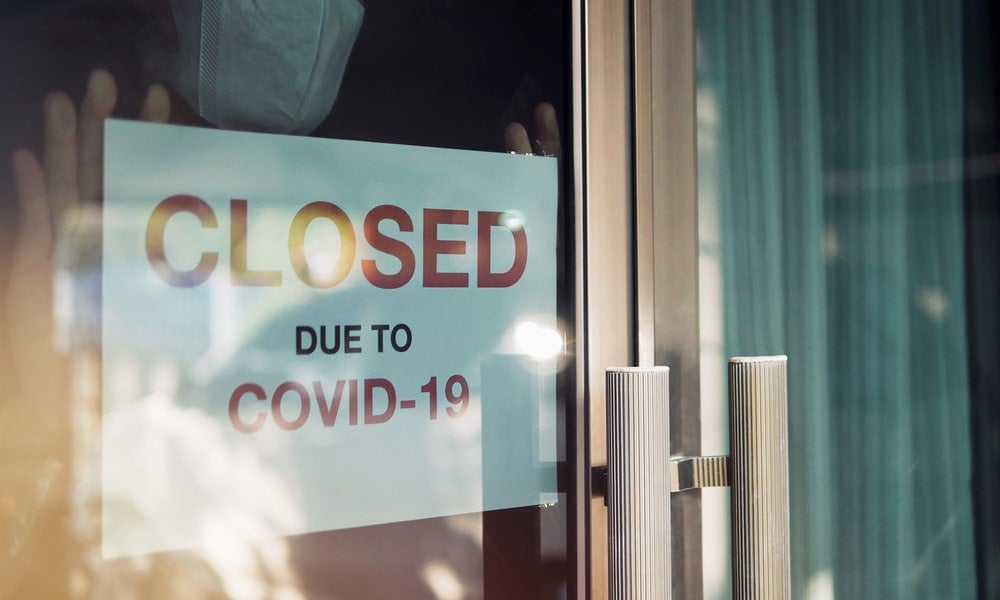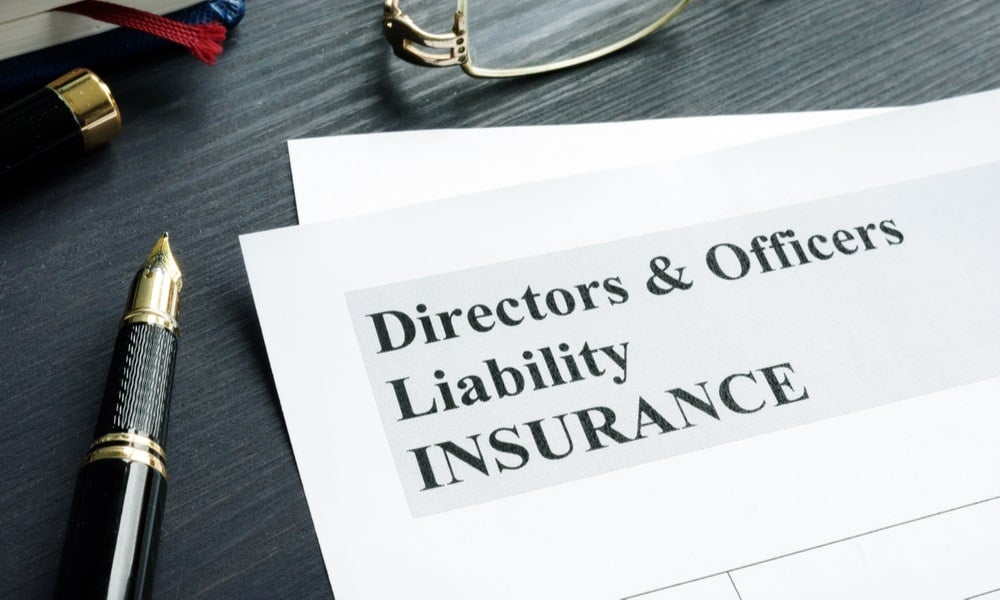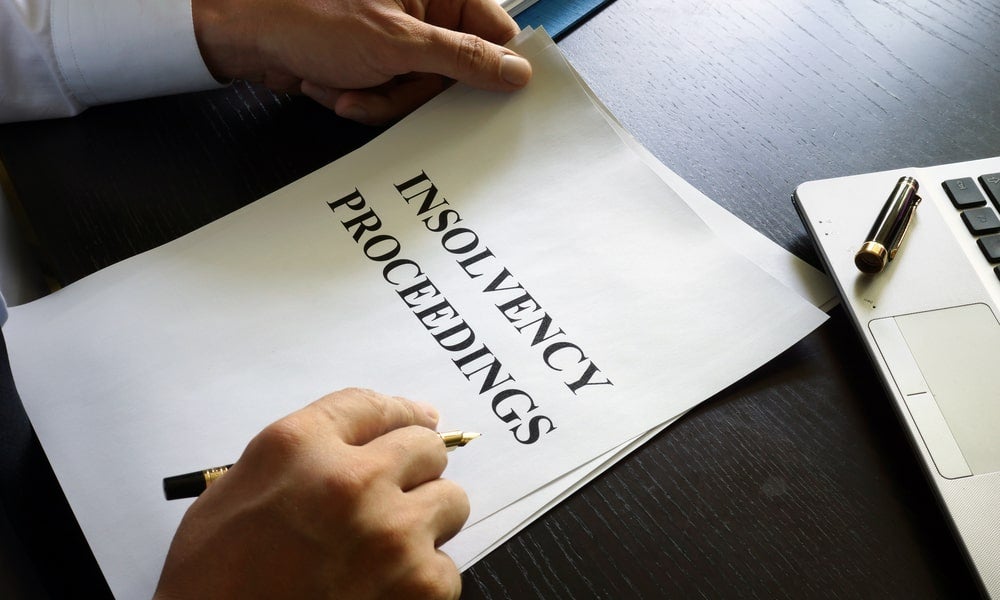What changes in insolvency laws mean for company directors
While temporary suspension of insolvent trading laws is welcome for companies in financial distress through the coronavirus pandemic, this also has implications for company directors, according to UNSW Business School's Anil Hargovan
It is never an easy time to be a company director. Directors operate in a legal minefield. They are subject to Australian insolvent trading law which is widely regarded as one of the most stringent in the world. This law, with its draconian penalties, generally keeps directors awake at night. This is true more so now than ever before due to the crippling economic effects of the coronavirus pandemic.
Directors have a legal duty to turn their minds to the liquidity profile and financial performance of the company. This includes the need to pay attention to the company’s cash flow and ability to pay debts when due and payable. Risk management frameworks, including risks to solvency concerns, will have to recalibrated in light of the current economic crisis. To say that trading conditions for businesses are extremely tough right now in a generation-defining pandemic would be a gross understatement. The number of corporate insolvencies can be expected to scale up, massively.
The temporary suspension of the insolvent trading laws, with effect from 25 March 2020, is a welcome step for companies in financial distress. It provides a safety net to help businesses continue to operate during a temporary period of illiquidity, rather than entering voluntary administration or liquidation.
What does this mean for potential company director liability in Australia, both during and prior to the suspension of the insolvent trading law?
Impact of the coronavirus pandemic: to trade or not to trade?
Insolvent trading law has real potential to become the directors’ worst nightmare during the coronavirus pandemic. It is a foregone conclusion that businesses across the board in Australia, and globally, will be hit hard by the economic impact of the coronavirus pandemic. The economic fallout is predicted by many economists to be far worse than the global financial crisis of 2008.
Some sectors of the economy, such as the hospitality, travel and manufacturing sector, are already badly hit by the coronavirus. Pubs, clubs, restaurants, travel agencies and many retail stores have temporarily shut their doors for an indefinite period. Compulsory quarantine measures, social distancing guidelines, and the stay at home advice with limited exceptions, put in place by the government are defensible from a public health perspective. Such measures, designed to keep the public safe and quell the spread of the coronavirus, however, are a double-edged sword.

The crippling effect these measures are likely to have on many businesses is a clear downside of the policies in place.
To be a company director, particularly in the SME sector, during the current paralytic state of economic affairs is for the brave.
This is because the operation of the insolvent trading law raises the difficult but pragmatic question of whether to trade or not to trade?
Judging the boundaries of solvency is not always easy, except in the most obvious situations. It is not unknown for companies to drift into and out of insolvency at any given moment in time. There is no bright-line test in the statutory definition of insolvency. A judge has famously observed that the legal definition insolvency is easy to state, thereafter the fog descends.
Discerning between situations where the company’s financial difficulty is temporary and remediable or endemic and fatal has its challenges. This is often a tricky area of law for directors to navigate should solvency concerns arise.
Consequences of insolvent trading for debts incurred prior to 25 March 2020
Directors, who may continue to trade under commercial pressure whilst the company is insolvent, may incur significant civil or criminal liability for debts.
The Corporations Act imposes liability on a company director when debts are incurred when the company is insolvent and there are reasonable grounds to suspect the company’s inability to pay those debts. In such circumstances, directors are expected to stop trading and to take reasonable steps to prevent further debts – such as placing the company into external administration. In this way, the law directs attention to the director’s responsibility for the overall financial management of the company.
Failure to do so may result in a pecuniary penalty up to $1.05 million per offence, or a banning order from management (which may extend up to 20 years). Then there is the pain of personal liability to compensate creditors if directors permit the company to trade whilst insolvent.

Statutory defences available to directors for insolvent trading have proven to be of cold comfort. Courts have taken a tough line. Analysis of the defences shows a very low success rate, despite honest behaviour by the director. Statutory reform in Australia in 2017, which introduced the safe harbour protection for directors who fail in their restructuring efforts to trade out of insolvency, is yet to be tested in the courts. Anecdotal evidence by insolvency practitioners suggests its practical utility, at this stage, is moot.
Directors involved in insolvent trading, prior to the commencement of the temporary suspension of this law, will face the full force of this draconian law.
A white knight
Reminiscent of that ancient proverb, cometh the hour cometh the man (or woman), the Federal Government has recently stepped in and legislated to temporarily suspend key aspects of insolvency law for a period of six months, effective 25 March 2020.
The current law reform offers twin benefits. It temporarily suspends the operation of the insolvent trading law; the trigger for initiating compulsory liquidation has been modified by lifting the minimum threshold amount to issue a statutory demand from $2000 to $20,000. Both reforms have a limited life. Its duration is for a period of six months. That presupposes the commercial world, and daily life will return to some sort of normality within that time span.
This is a bold, and unprecedented, move to contain the economic effects of the coronavirus on businesses. It can be justified on the basis that extraordinary economic times call for such extraordinary measures
Sensibly, to protect against moral hazard, the government has not suspended the criminal penalties for insolvent trading. Should directors breach this law, with dishonesty or recklessness, they could face up to fifteen years imprisonment and/or higher pecuniary penalties.

Why is this temporary suspension of the law such a big deal and how will this assist directors?
The dire economic conditions caused by the coronavirus pandemic, with no end date currently in sight, have enormous implications for directors in companies struggling to survive the current economic shock.
Managing cash flow when there is generally no, or very little, business to be conducted during the pandemic to keep the business afloat can put a financial strain on a business. It is not unusual for this to rapidly escalate into a full-blown financial crisis where solvency concerns will loom large in businesses.
Empirical evidence shows that directors in proprietary companies are most at risk from personal liability arising from insolvent trading law. Australian insolvent trading law, however, has an expansive reach. The law, in its application, does not discriminate against the type of company (public or proprietary), nor against a type of director (executive, or non-executive, or whether officially appointed or not).
Non-executive company directors of companies in financial distress, nor the Chair of such companies, are not off the hook. The $97 million liability imposed on the Chair of the Victorian division of the National Safety Council, resulting in his bankruptcy, remains the high watermark for personal liability. John Elliot, widely regarded as a potential prime minister, was also bankrupted following personal liability for breach of insolvent trading law. He had failed to show regard to the position of the company’s creditors in his role as non-executive director.
The temporary suspension of the insolvent trading law offers directors’ valuable breathing space. Directors are now immune from civil liability while searching for corporate rescue options, such as restructuring or informal workouts, when dealing with solvency concerns. This concession, however, does not extend to corporate debts incurred before 25 March 2020. Directors, in those circumstances, will be exposed to the full force of the insolvent trading law.
The temporary suspension offers a lifeline for directors who do the right thing in trying to salvage the company outside of external administration though, on the downside, creditors may have to wear the cost.

It is arguable, however, that the government’s initiative serves an important social purpose and is for the greater good. This will especially be the case should the temporary suspension of the insolvency laws result in fewer companies going to the wall, in fewer job losses and it minimises societal dislocations that generally arise upon liquidation.
What will happen upon the expiry of the temporary suspension of these insolvency laws?
Directors will, once again, face the harsh realities of insolvent trading law with the removal of the safety net. They will need to carefully monitor the financial stability of their company and be proactive at the earliest sign of financial distress. They will either need to formulate a corporate rescue plan with reasonable prospects of success, to satisfy the business judgment rule under insolvent trading law, or promptly place the company into external administration. Failure to take either step will leave the director exposed to civil and criminal penalties under insolvent trading law.
It is also likely to renew the debate as to whether Australia needs to have an insolvent trading law, and, if so, whether its severity should be tempered. It is noteworthy that no such statutory law exists in the United States and that watered-down versions of this statutory law exist in other Commonwealth countries, such as the UK and NZ.
Depending on the speed of flattening the curve of the coronavirus pandemic, it is too soon to tell whether the directors’ safety net from insolvent trading law will be extended beyond six months.
Anil Hargovan is an Associate Professor in the School of Business Law and Taxation at UNSW Business School. For more information please contact Anil via email.
